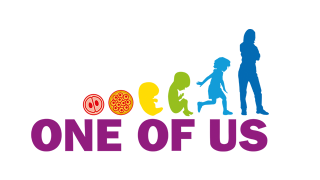Top European Court hears EC 'acted undemocratically' in rejecting petition to stop abortion funding

Luxembourg. March 25, 2019.
This past Monday, the question of the European Commission’s rejection of the most supported European Citizens’ Initiative (ECI) in history came before the highest court in Europe, the Grand Chamber of the Court of Justice of the European Union. ‘One of Us’, which earned the support of nearly 2 million EU citizens, called for an end to EU funds being spent on oversees abortions and research – which requires the destruction of the human embryo. However, all of its legislative proposals were rejected outright on the sole grounds that the Commission held an opposing ideological view.
Rejected by the Commission
‘One of Us’, represented by barrister Paul Diamond and solicitor Roger Kiska, both from the Christian Legal Centre, argued that if the Commission is allowed an almost unfettered discretion to reject an ECI solely because it does not like the worldview of the proposals made, that this in essence signals the death knell of the ECI as a democratic instrument.
The ECI is an instrument of direct democratic participation which allows EU citizens to propose legislation to the executive body of the European Union. If and when certain defined conditions are met, this would then invite the Commission to introduce those proposals as draft laws to be determined by the European Parliament and European Council. Those conditions require ECI organisers to raise at least 1 million signatures of support from at least 7 EU Member States within a 12-month period from registration. To date, only 4 ECI’s have been successful, with nearly 7 times as many being rejected upon registration and 5 times as many being withdrawn by organisers. Of the 4 successful ECI’s, ‘One of Us’ has been the only ECI to have all of its legislative proposals rejected by the Commission.
Before the Grand Chamber
Monday’s proceedings, before 15 judges and an Advocate General, lasted more than 2 hours and included some lively exchanges between the judges and counsel for both parties. The Commission was extensively challenged on its position that it could reject an ECI based on undefined political value judgments, and that its decisions not to take up the legislative proposals of an ECI should receive the most limited standard of judicial review.
In its oral submissions, ‘One of Us’ decried the current state of the European Union, noting that the creation of the ECI was meant to overcome the perception among Europeans that the EU is an undemocratic institution. But counsel for ‘One of Us’ argued that the outright rejection of the most supported ECI in history, simply because of viewpoint descrimination, demonstrates exactly what an undemocratic institution looks like.
Roger Kiska of the Christian Legal Centre, commenting on the hearings, noted that “just like suggesting that a freedom of expression which limits people to expressing ideas that everyone already agrees with is no freedom at all. So too is a right of democratic participation to propose legislation which only the Commission ideologically agrees with not a real democratic right. By definition, the Commission already proposes legislation with which it ideologically agrees with. The ECI has no added value whatsoever under such circumstances.”
The Advocate General is set to deliver his opinion on the 13 of June, which will then inform the Grand Chamber in their deliberations. A final judgment is likely forthcoming in early autumn. Currently, despite having no legislative competency over questions involving the unborn child under its defined powers, as set out in the Treaty on the Functioning of the European Union, the European Commission nevertheless provides extensive funding to abortion providers outside of the EU, as well as funding embryonic stem cell research as part of the Horizon 2020 Framework. The ‘One of Us’ ECI sought to amend existing legislation to prohibit such expenditures.
